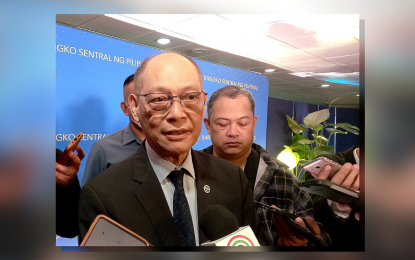
FOOD PRODUCTIVITY. Finance Secretary Benjamin Diokno on Tuesday (April 4, 2023) cites the need to improve the country's food production capability to help address food inflation, among others. He said the government is tapping technology to assess the situation, increase agricultural production and help mitigate risks. (PNA file photo)
MANILA – Department of Finance (DOF) Secretary Benjamin Diokno on Tuesday cited the importance of ensuring increased food production in the country to address food-related inflation, saying importation is the last resort to boost supply.
In a briefing, Diokno recognized the need to improve domestic agricultural production to increase food supply, which is among the reasons for the current elevated rate of price increases in the country.
“If we compare our farm output with other countries, we’re behind so we are introducing both the technology and new methods, better seeds (and) fertilizer. We are investing in all these,” he said.
Diokno said the government turns to importation “if there is a difference between supply and demand.”
He said ensuring enough supply will help address the gap and prevent periodic food price inflation.
“So importation is a last resort. I think we really need to focus on production and higher productivity,” he added.
Diokno said the deceleration of inflation last February to 8.6 percent from the previous month’s 14-year high of 8.7 percent, “seems to imply that inflation is headed downward.”
The Philippine Statistics Authority (PSA) is scheduled to report the March 2023 inflation rate on Wednesday.
The Bangko Sentral ng Pilipinas (BSP) forecasts the latest figure to stay within 7.4 to 8.2 percent.
The government has established an Inter-Agency Committee on Inflation and Market Outlook (IAC-IMO), an advisory team for the Economic Development Group (EDG), that will assess measures eyed to keep inflation within target.
Among others, it is tasked to monitor the main drivers of inflation, assess demand and supply of food commodities, monitor external and internal shocks, and facilitates data-sharing among state agencies.
The committee is co-chaired by the Secretaries of DOF and the National Economic and Development Authority, while the Secretary of the Department of Budget and Management was tasked as the Vice Chairperson.
Diokno said that based on initial discussions, the government will use three tools to assess the demand and supply of key commodities using technology.
These are the Philippine Rice Information System (PRiSM), the Project Smarter Approaches to Reinvigorate Agriculture as an Industry (SARAI) and the Data Analytics Technologies and Operation Services for Space Data (DATOS), he said.
The first one is an operational system for rice monitoring around the country that identifies the scale and magnitude of production gaps in rice using Earth Observation technologies.
SARAI is an action-research program that provides agricultural stakeholders with site-specific advisories to address climate risks.
Developed by the Department of Science and Technology’s (DOST) Advanced Science and Technology Institute (ASTI), DATOS uses remote sensing, space technology and data science applications to support critical activities on disaster mitigation, analysis and advice.
Diokno said they are tapping technology to boost the production of agricultural items since the Philippines is way behind in this aspect. (PNA)
